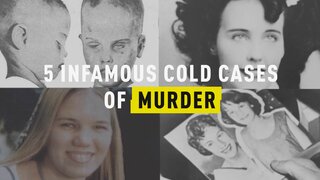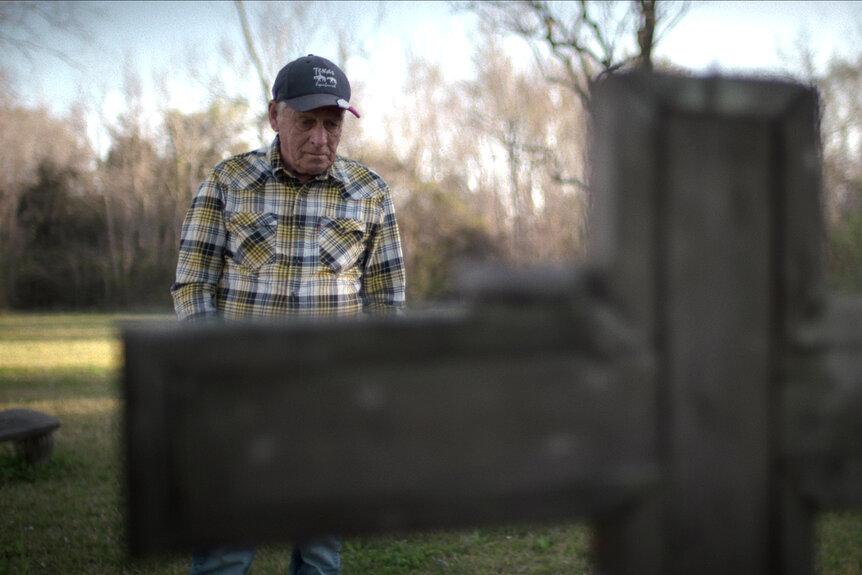Create a free profile to get unlimited access to exclusive videos, breaking news, sweepstakes, and more!
Director of 'Crime Scene: The Texas Killing Fields' Wants To Create 'Letter of Appreciation and Support' To Victims' Families
Director Jessica Dimmock told Oxygen.com that she wanted to create a "letter of appreciation" to the families of victims who were found in the Texas "Killing Fields."

In “Crime Scene: The Texas Killing Fields,” director Jessica Dimmock investigates an area known as the “Texas Killing Fields,” a region that has become a burial ground for missing girls and women. The Netflix docuseries focuses primarily on the deaths of three young murdered women discovered in the area in the 1980s, as well as a fourth in 1991: Laura Miller, Heidi Fye, Donna Prudhomme and Audrey Lee Cook.
As the docuseries shows, their disappearances seemingly weren’t taken as seriously as they should have. The women were dismissed as runaways and others were depicted as outliers of society.
Laura Miller’s father Tim Miller — who is featured prominently in the series — expressed feeling dismissed by the investigators and has since put his energy towards helping other families of missing children feel less alone. He founded Texas EquuSearch, a non-profit search and rescue organization, in 2000 and has since assisted in thousands of cases throughout the country and abroad. He also won a $24 million wrongful death lawsuit against Clyde Edwin Hedrich — who was never criminally charged — in 2014 for the death of Laura.
RELATED: The Terrifying True Story Of The Texas Killing Fields
In addition to the four victims, the docuseries — executively produced by Joe Berlinger — also shows that multiple other women were found dead in the area. Since the early 1970s, thirty murder victims have been found within the “Killing Fields” region.
Oxygen: What drew you to this story in particular, and what about it speaks to you?
Jessica Dimmock: I think I was really drawn to it especially after being a fan of the other previous seasons of “Crime Scene,” both “Cecil Hotel” and “The Times Square Killer.” I like crime documentaries that focus on the kind of cultural and historic, and in some cases, environmental factors that can all come together to tell the story. I was really drawn to that in “The Killing Fields.” There was a pattern. That doesn't mean it's necessarily the same killer but that there was a pattern that allowed serial killers, basically, to act on the same territory over and over again, and that's really ujnusual and unprecedented.
What do you hope viewers come after watching the docuseries?
One of our goals, first and foremost, is for the victims, the women in particular. Also, their families who have had these unanswered questions for so many years and decades. The biggest hope is that there is justice for them, that they finally have answers. We hope that they can have some form of resolution and some knowledge about what happened.
I also hope the audience understands how interconnected these systems are and how quickly things can get botched. In “Crime Scene,” and in this particular season, we are always interested in a place being one of the factors that advanced a crime. With this, there were really so many factors that came into play. There's police departments that were not communicating with each other. There was a highway that allowed a way in and a way out of a lot of separate but connected communities. There was weather issues. This part of Texas gets a lot of hurricanes, rains and flooding, so evidence gets destroyed. If you're not on top of all of these things, and if you're not quickly capturing evidence or listening to families when they say something's wrong, things can spiral out of control very quickly. And in this case, that happened over and over again over a bunch of decades.
One of the issues that you’ve touched on a lot is how the victims weren’t treated as valuable enough and how the families weren’t believed. Time and time again, you read stories of serial killers getting away with a string of killings by targeting people that are considered “not as important.” How can we continue to learn from that mistreatment and dehumanization of victims as we move forward?
Something that has happened in these cases over and over again, is that parents or family members knew that something was wrong. They went to authorities and the authorities doubted them and said, “You know, it's probably a runaway” or “she's going to come back” and all these families knew that wasn't the case. I think, listening to families and believing them.
What can you say about Tim Miller?
He just took it upon himself to help other families and his tenacity is a really good quality when it comes to looking for missing people. He’s like a dog with a bone who will not let it go. He listens to the families and he has been successful in locating a lot of people, sometimes still alive and sometimes already deceased, but they're able to find evidence. He understands from his own daughter’s case that if the police would have listened to him earlier on, they would have found Laura. She would have been dead but at least they could have probably gotten some evidence. Sometimes you can’t change the murder but you can change the outcome when it comes to justice. He’s really committed to helping people in that way.
Anything else you’d like to say about the families in this case?
I think that ultimately this is a letter of appreciation and support back to the families. This is really their story and they have persevered when others have given up. If it weren’t for the families pushing, demanding answers, reopening boxes, listening to cassette tapes, looking at photo albums, and finding people that may have known their relatives on Facebook — if it wasn't for their perseverance, we wouldn't be telling these stories. We want to honor the work that the survivors of these crimes put into making sure that justice is served.



























